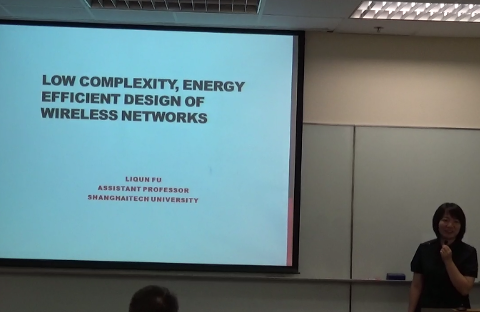
Future wireless systems are evolving to support the exponentially increasing traffic demands, which, in most cases, is achieved at the expense of a higher energy consumption and a considerable impact on the environment. Energy efficient transmission is of critical importance to reduce the carbon footprint and to prolong the battery lifetime of wireless devices. We investigate energy-efficient communications for time-division multiple access (TDMA) multiple-input multiple-output (MIMO) cognitive radio (CR) networks operating in underlay mode. In particular, we consider the joint optimization over both the time resource and the transmit precoding matrices to minimize the overall energy consumption of a single cell secondary network with multiple secondary users (SUs), while ensuring their quality of service (QoS). The corresponding mathematical formulations turn out to be non-convex, and thus of high complexity to solve in general. We give a comprehensive treatment of this problem, considering both the cases of perfect channel state information (CSI) and statistical CSI of the channels from the SUs to the primary receiver. We tackle the non-convexity by applying a proper optimization decomposition that allows the overall problem to be efficiently solved. Simulation results show that the energy-optimal transmission scheme adapts to the traffic load of the secondary system to create a win-win situation where the SUs are able to decrease the energy consumption and the PUs experience less interference from the secondary system. The effect is particularly pronounced when the secondary system is under-utilized.
Dr. Liqun Fu is an Assistant Professor and the Director of the Future Networking (FUN) Lab, in the School of Information Science and Technology at ShanghaiTech University. She received the Bachelor Degree (Honors) in Electrical Engineering from Xiamen University in 2003, Master degree in Electrical Engineering from Tsinghua University in 2006, and the Ph.D. degree in Information Engineering from The Chinese University of Hong Kong in 2010. Dr. Fu was a visiting scholar at CommNet Group, the Department of Electrical Engineering, Princeton University, from June to November in 2009. She was with the Institute of Network Coding of The Chinese University of Hong Kong as a Post-Doctoral Fellow from 2011 to 2013, and with the ACCESS Linnaeus Centre of KTH Royal Institute of Technology as a Post-Doctoral Researcher from 2013 to 2015.
Dr. Fu received the Global Scholarship for Research Excellence, awarded by The Chinese University of Hong Kong in 2009. She received the ACCESS Scholarship awarded by the KTH Royal Institute of Technology in 2013. Recently, she was selected to the “Young 1000-Talents Plan” by the Chinese Government in 2016.
Dr. Fu’s research interests are mainly in communication theory, optimization theory, game theory, and learning theory, with applications in wireless networks, power transfer networks, and large-scale data networks. She has published more than 20 research papers in the leading journals and prestigious conferences in the related field, such as IEEE Journal on Selected Areas in Communications (JSAC) and INFOCOM. She served as the Vice-Chair of the GCCCN Special Interest Group of the IEEE Comsoc Technical Committee on Green Communications and Computing, 2012-2014 and the Technical Program Co-chair of the GCCCN Workshop of IEEE INFOCOM 2014. She serves as the Web Chair of IEEE WiOpt 2018, the Publicity Co-chair of the GSNC Workshop of IEEE INFOCOM 2016. She also serves as a technical program committee (TPC) member for many leading conferences in communications and networking, such as IEEE ICC, Globecom, and WCNC.
